Canon EOS C300 Mark III Digital Cinema Camera Body (EF Lens Mount)
€9,899.00 ex vat.
4K Super 35mm Cinema EOS System Camera – Featuring 4K Super 35mm DGO sensor, with 4K 120P Slow Motion, High Dynamic Range and Dual Pixel CMOS AF
Out of stock
Create cinema-quality productions with the Canon EOS C300 Mark III Digital Cinema Camera, which features a Super 35mm Dual Gain Output sensor with up to 16 stops of high dynamic range capability for superior HDR recording and low noise. The EF lens mount offers compatibility not only with Canon’s existing broad range of DSLR lenses but also with their line of EF-mount cinema prime, zooms, and even 2.0 and 1.33 anamorphic lenses. The mount is also interchangeable with a separately available PL mount by the end user.
The sensor is paired with the Canon DiGIC DV7 image processor, which uses the sensor’s raw information and processes it for various applications such as high frame rate recording, raw recording, HDR-PQ output, electronic image stabilization (EIS), and proxy recording. The camera records up to DCI 4K resolution video to dual CFexpress cards, and an SD card slot is available to record additional images. High frame rates up to 120 fps can be recorded in 4K raw, and up to 180 fps in 2K cropped mode. Canon’s Cinema RAW Light and XF-AVC recording formats are supported, providing DCI 4K images with a 10-bit, 4:2:2 Long GOP codec. Proxy recording is also supported, which allows a significant boost to your post-production speed.
For more flexibility during post-production, the camera also offers Canon’s Log 2 and Log 3 gamma modes, which results in excellent tonal reproduction in the highlight and low-light regions of an image, and an expanded dynamic range. The C100 Mark II also supports custom user LUTs that can be utilized on monitors, the LCD, or viewfinder to ensure the most accurate color. Canon’s Dual Pixel CMOS AF (autofocus) support allows you to not only provide accurate autofocus, but it also features touch AF and face detection.
The camera features up to 12G-SDI output over a single BNC cable, timecode I/O, and genlock input BNCs. It supports up to 4-channel audio using the internal mic, mini-mic input, and XLR ports, and an expansion unit can be added to support up to four XLR inputs. The body has a modular design that can either be stripped down completely or be built up using the included handle, 4.3″ rotating touchscreen LCD unit with full controls, grip, and thumb rest.
Canon Super 35 Dual Gain Output (DGO) Sensor
DIG!C DV7 Image Processor
Dual Pixel CMOS Autofocus with Touch AF and Face Detection
High Frame Rate; 4K 120p and 2K CROP 180p
Canon Log 2 and 3 Gamma
The EOS C300 Mark III supports both Canon Log 2 and Canon Log 3 gamma. In post-production, Canon Log is designed to reproduce the entire tonal range that the CMOS image sensor is capable of. Log workflows provide the user with a higher dynamic range, more highlight and shadow retention, and more flexibility in grading.
Canon Log 2 provides the largest dynamic range and image detail. While Canon Log 2 provides the most post-production flexibility and full dynamic range of the sensor, it typically requires more time in color correction.
For users looking for most of the benefits of Log workflow, but with shorter turnaround times, Canon Log 3 provides an alternative with only a slightly reduced dynamic range of 14 stops.
Modular Design
Canon Cinema RAW Light and XF-AVC Recording
Thanks to the powerful DIG!C DV7 image processing platform, the EOS C300 Mark III can record Cinema RAW Light directly to two onboard CFexpress cards. Cinema RAW Light offers plenty of freedom for grading with a dynamic range that can exceed 16 stops with Dual Gain Output (DGO) technology while maintaining file sizes that are about 1/3 to 1/5 the size of Canon Cinema RAW. Canon Cinema RAW Light offers a great combination of codec efficiency and quality.
In addition to the conventional Intra-based XF-AVC codecs, a 4:2:2 10-bit Long GOP-based codec has been added with consideration for a balance of quality and data rates. This new Long GOP-based codec has a data rate that is less than half that of the conventional Intra codecs. This new lightweight codec makes it easier for users to reduce media costs and work with cloud-based infrastructures.
The EOS C300 Mark III Digital Cinema Camera incorporates the new Canon XF-AVC codec that allows 4K and 2K image data to be recorded internally onto CFexpress cards in workflow-efficient file sizes using advanced video compression. Using the XF-AVC codec, the EOS C300 Mark III can record a variety of frame fates up to 4K 120 fps and 2K up to 180 fps.
LM-V2 4.3″ LCD Touchscreen Monitor
4-Channel Audio Recording
Support for Custom User LUTs
User-Interchangeable Lens Mounts
Anamorphic Lens Support
Proxy Recording
Higher resolution, greater bit depths, and faster frame rates provide versatility and greater image quality but come at the cost of much larger file sizes. Proxy files can greatly speed up the editorial process by providing a lower bandwidth alternative for initial file sharing and rough cutting.
Canon’s powerful high-speed DIGIC DV7 image processor makes it possible for the EOS C300 Mark III to simultaneously record 2K Proxy files. Cinema RAW Light can be recorded to the internal CFexpress card, while an XF-AVC 2K 4:2:0 8-bit proxy can be recorded directly to an internal SD card. The C300 Mark III can also apply LUTs to Proxy recording.
Electronic Image Stabilization
12G-SDI Support
RC-V100 Support and LANC Compatible
Accessories shown not included
| Manufacturer |
|---|
Included
- Canon EOS C300 Mark III Digital Cinema Camera Body (EF Lens Mount)
- Canon GR-V1 Camera Grip for EOS C200
- Canon LM-V2 4.3″ LCD Monitor
- Canon LA-V2 LCD Attachment Unit
- Canon Single Battery Charger for EOS C300 Mark II, C200, and C200B Batteries
- Canon BP-A60 Battery Pack For EOS C300 Mark II, C200, and C200B
- Canon UN-5 Unit Cable for Canon EOS C200, C300 Mark II, C700, and XC15 (20″‘)
- Handle Unit
- Extension Unit Attachment Bracket
- SS-1200 Shoulder Strap
- Compact Power Adapter CA-CP200 B
- AC Power Cable
- Power Cord US
- Thumb Rest
- Microphone Holder Unit
- M4 Screw for Microphone Holder
- 1/4″ Wrench
- M3 Wrench
- M4 Wrench
- 1/4″ Head Bolt
- M3 Head Bolt
- Bolt Stopper
- Limited 1-Year Warranty
Features
- Super 35mm Dual Gain Output (DGO) Sensor
- 4K 120p, 2K Crop 180p HDR
- Cinema RAW Light and XF-AVC H.264 Codec
- EF Lens Mount, DIG!C DV7 Image Processor
Specs
| Image Sensor Size | 26.2 x 13.8 mm (Super35) |
| Sensor Type | CMOS |
| Sensor Resolution | Actual: 4206 x 2280 (9.6 MP) Effective: 4096 x 2160 (8.85 MP) |
| Pixel Pitch | 6.4 µm |
| Color Filter | Bayer |
| ISO | 100 to 102,400 (Expanded) |
| Gain | -6 to 54 dB (Native) -2 to 54 dB (Expanded) |
| Advertised Dynamic Range | 16 Stops |
| Lens Mount | Canon EF |
| Lens Communication | Yes, with Autofocus Support |
| Interchangeable Lens Mount | Yes |
| Shutter Speed | 1/12 to 1/2000 sec (In 24p/60p Mode) |
| Built-In ND Filter | Mechanical Filter Wheel with 2 Stop (1/4), 4 Stop (1/16), 6 Stop (1/64), 8 Stop (1/256), 10 Stop (1/1024) ND Filters |
| Built-In Microphone Type | None |
| Recording Media | 2 x CFexpress Card Slots 1 x SDXC Card Slot |
| Variable Frame Rates | 1 to 180 fps |
| Recording Modes | MXF: 4096 x 2160p (225 to 410 MB/s) 3840 x 2160p (225 to 410 MB/s) |
| Audio Recording | 2-Channel 24-Bit 48 kHz |
| Video Connectors | 1 x BNC (12G-SDI) Output 1 x BNC (12G-SDI) Monitor Output 1 x HDMI Output |
| Audio Connectors | 2 x 3-Pin XLR Mic Level (+48 V Phantom Power) Input 1 x 1/8″ / 3.5 mm Stereo Mic Level Input 1 x 1/8″ / 3.5 mm Stereo Headphone Output |
| Other I/O | 1 x BNC Timecode Input 1 x BNC Timecode Input/Output 1 x 2.5 mm LANC Control Input |
| Display Type | LCD |
| Screen Size | 4″ |
| Touchscreen | Yes |
| Screen Resolution | 1,230,000 Dots |
| EVF | Optional, Not Included |
| Screen Size | .46″ |
| EVF Resolution | 1,170,000 Dots |
| Battery Type | Canon BP-A Series |
| Power Connectors | 1 x 4-Pin LEMO Input |
| Accessory Mount | 1 x 1/4″-20 Female 1 x Cold Shoe Mount |
| Dimensions | 5.9 x 7.2 x 7.2″ / 149 x 183 x 183 mm (Without Grip) 7.5 x 7.2 x 7.4″ / 19.1 x 18.3 x 18.8 cm (With Grip) |
Be the first to review “Canon EOS C300 Mark III Digital Cinema Camera Body (EF Lens Mount)” Cancel reply
You must be logged in to post a review.
Related products
Cameras


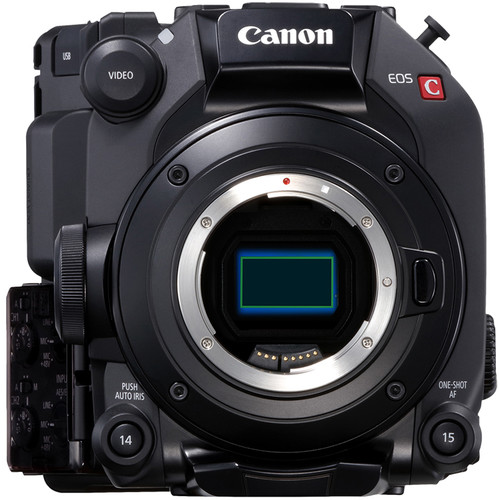
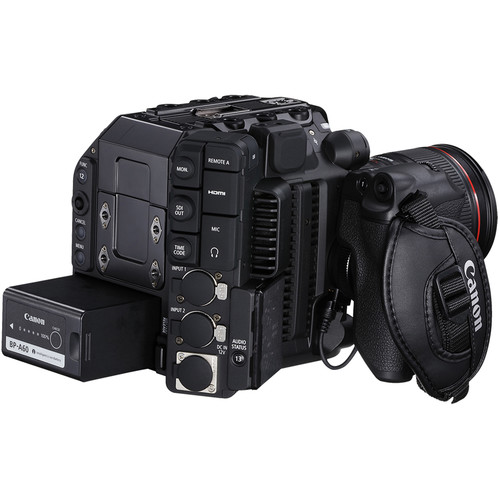
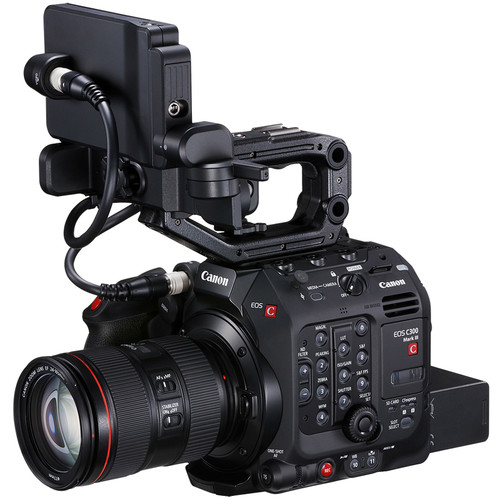
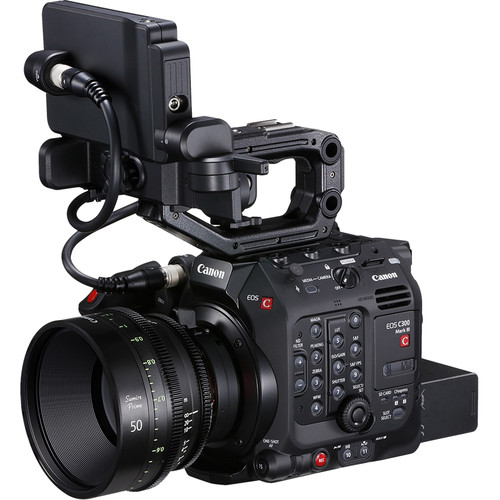
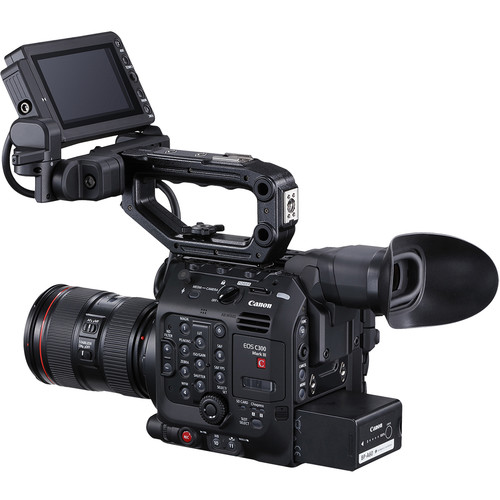
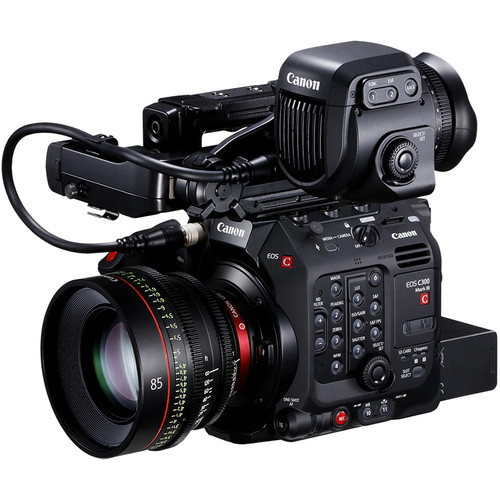
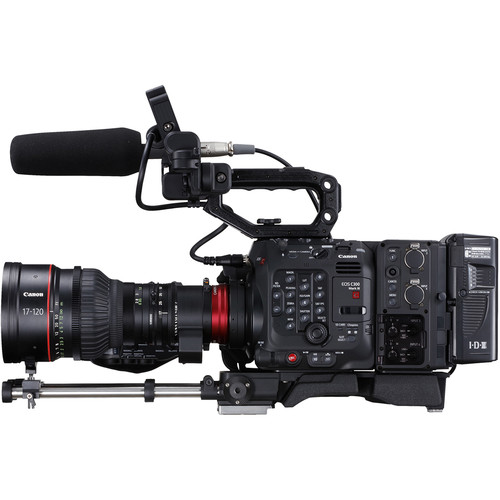
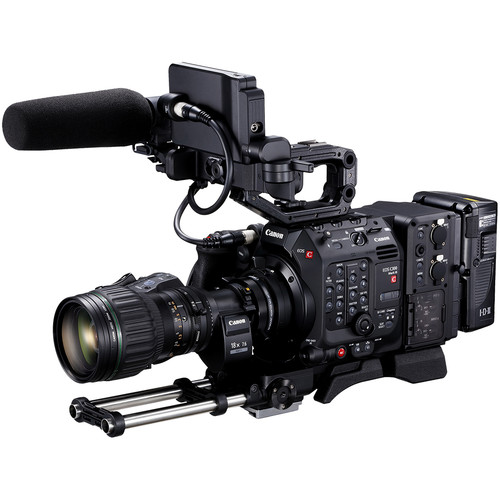
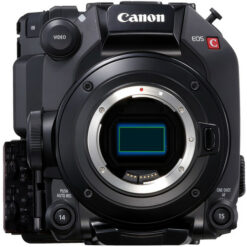
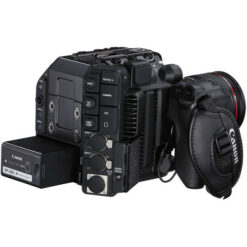
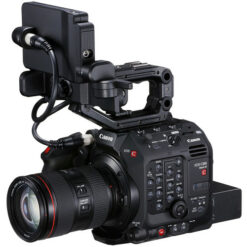
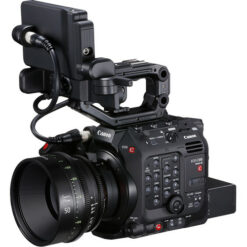
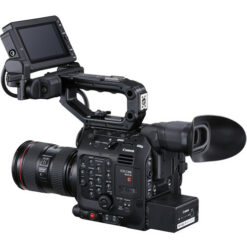
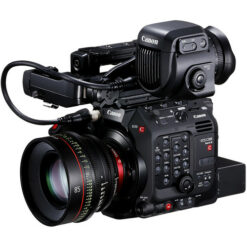
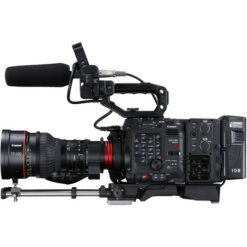
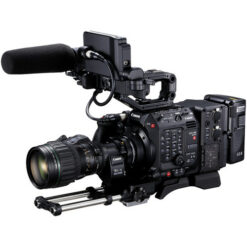
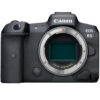
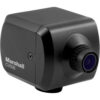
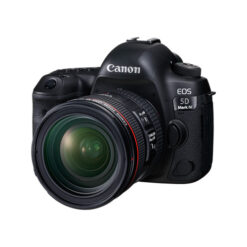
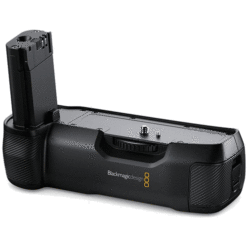
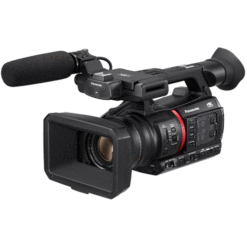
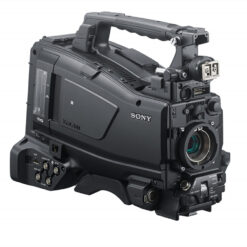
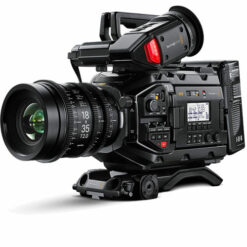
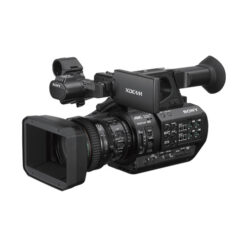
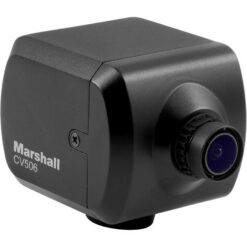
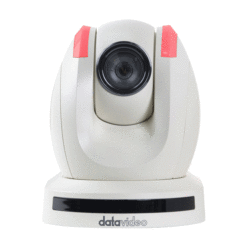
Reviews
There are no reviews yet.